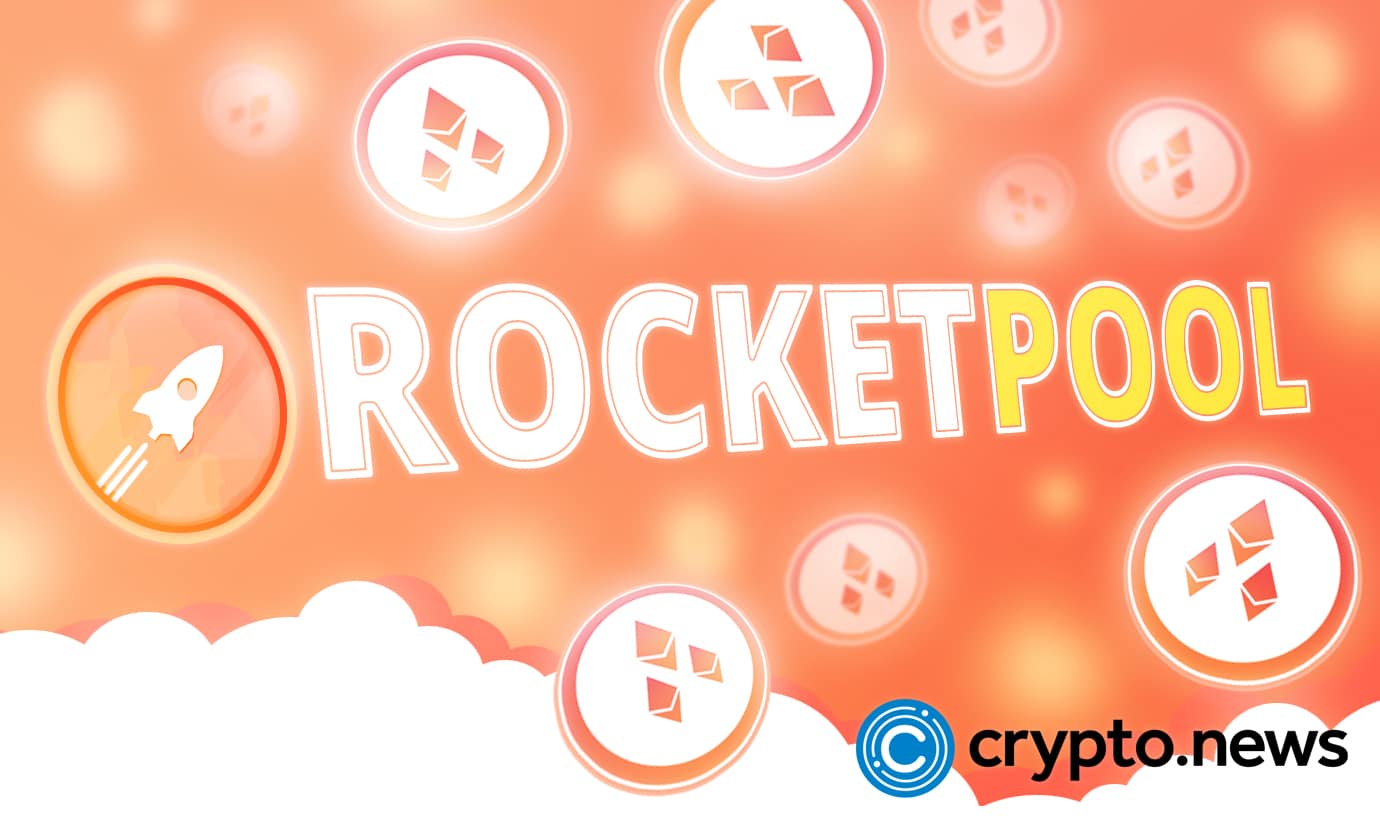Rocket Pool Controls One Percent of All Ethereum 2.0 Validators

Rocket Pool, a decentralized ETH staking pool provider, operates one percent of all Eth2.0 validators roughly three months after launching.
Rocket Pool Runs one Percent of Eth2 Validators
In a tweet on February 20, Rocket Pool thanked its growing global community of node operators and rETH holders.
The platform operator further added that their presence in Eth2 is massive for decentralization and marks the beginning of their ambitious journey of eventually becoming a force to reckon in the Eth2 ecosystem, controlling over 10 percent of all Eth2 validators.
“Rocket Pool is now running one percent of Ethereum’s validators! It has been a crazy three months; a massive thank you to all our fantastic node operators and rETH holders. This is a huge win for decentralization, and just the beginning!”
Eth2 Decentralization and the Role of Rocket Pool
Public blockchains are defined by their decentralization, scalability, and security levels. It is a delicate balancing act that developers must always strive to meet for the network to function at optimum while satisfying all technical requirements as users demand.
The launch of Rocket Pool is a major milestone for Eth2’s decentralization, considering the huge default capital requirements needed to run a validator. As Ethereum plans to shift to Eth2, validators must stake 32 ETH coins to qualify. However, the surge in ETH prices in recent months has blocked millions of interested Ethereum supporters from raising the minimum staking amounts and running validator nodes.
The launch of Rocket Pool was a relief for ETH holders without 32 ETH. Instead of committing a huge chunk of their liquid assets to Eth2, they would delegate via the decentralized staking pool provider and receive a share of annual yield for taking part in network security. According to details, over 822 node operators have cumulatively staked over 94.8k ETH since the platform launched.
Rocket Pool allows Retail ETH Holders to Stake and Earn Rewards
Rocket Pool has emerged as a preferred Eth2 staking pool considering its high APR of around 4.3 percent. Crucially, the guarantee of non-custodial operations also remains an irresistible offer for ETH delegators. In Rocket Pool, node operators don’t handle funds. Instead, any penalty incurred is slashed from their earnings and not from rETH holders. At the same time, delegators can deposit as little as 0.01 ETH and receive an equivalent amount of rETH liquid staking tokens which accrue rewards over time.
There is also an option of staking and running a full node. In this arrangement, Rocket Pool would require an operator to stake 16 ETH in exchange for higher ROI earned from staking pool ETH and RPL rewards from providing RPL collateral. On average, a node operator who locks 16 ETH can earn up to 6.36 percent APR on top of RPL rewards.
The Ethereum network is transitioning and plans to eventually switch off the energy-inefficient Proof-of-Work network for a staking system. Following the activation of the Beacon Chain, a Proof-of-Stake consensus algorithm blockchain running in parallel to the Proof-of-Work network, over $25 billion of ETH has been locked by active validators across the globe.












